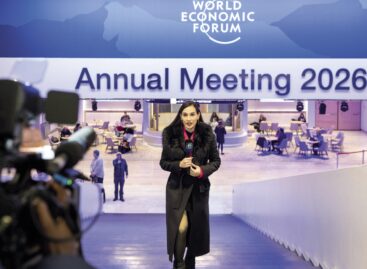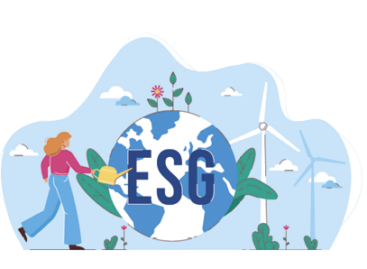New EU Regulation Targets Deforestation-Free Supply Chains
The European Union (EU) is set to implement a significant new regulation aimed at combating deforestation and forest degradation globally. The European Union Deforestation Regulation (EUDR), which will come into force on December 30, 2024, will impose strict requirements on companies importing or exporting specific products associated with deforestation risks, such as cocoa, coffee, soy, and palm oil. The regulation marks a major step in the EU’s commitment to environmental sustainability and the protection of global forests, which play a crucial role in mitigating climate change.
Scope of the EUDR

The EUDR applies to several key commodities, including wood, palm oil, soy, coffee, cocoa, and certain livestock products like beef and leather. These products have long been linked to deforestation, especially in tropical regions like South America, Southeast Asia, and parts of Africa, where vast areas of forest are cleared for agricultural purposes. The regulation will require companies to ensure that these products are sourced from land that has not been subject to deforestation after December 31, 2020.
Additionally, the regulation covers both deforestation and forest degradation, a broader concept that includes the deterioration of forests’ health and ecosystems. This makes the EUDR one of the most comprehensive efforts to tackle not only deforestation but also the degradation of forested areas, ensuring that the land remains productive and ecologically viable.
Due Diligence Requirements
Under the EUDR, companies will need to establish robust due diligence systems to trace the origins of the products they handle. This means that businesses must collect detailed information on their supply chains, including geographic coordinates of the land where the products were grown or harvested, and confirm that they comply with local laws related to land use. The due diligence process will require businesses to assess the risk of deforestation, take appropriate measures to mitigate those risks, and maintain comprehensive records to demonstrate compliance.
Companies will also be required to submit a declaration of compliance to authorities within the EU, affirming that the products they import or export are deforestation-free and meet the regulation’s criteria. These declarations will be subject to regular audits and reviews by EU authorities, who will have the power to impose significant penalties for any breaches of the regulation.
Challenges for Businesses
Meeting the requirements of the EUDR will be a time-consuming and complex process for many companies, particularly those with large and dispersed supply chains. The traceability requirements are particularly demanding, as companies will need to ensure that every step of their supply chain, from farm to market, can be accurately tracked and documented. This may require substantial investments in new technologies, such as blockchain or satellite monitoring, to verify the deforestation status of specific plots of land.
Businesses will also need to engage more closely with their suppliers to ensure compliance. This could mean working with smallholder farmers in developing countries to adopt more sustainable agricultural practices and to provide the necessary data for traceability. For many companies, especially those that source from high-risk areas, these adjustments will need to be made as soon as possible to meet the December 2024 deadline.
Penalties and Enforcement
The regulation includes strict enforcement measures, with substantial penalties for companies that fail to comply. Non-compliance could result in fines, product seizures, or even bans from the EU market. Given the importance of the EU as a major trading partner for many countries, particularly in the agriculture and timber sectors, the consequences of failing to meet EUDR standards could be severe.
However, the EUDR also offers an opportunity for businesses to demonstrate leadership in sustainability. Companies that can show that their products are deforestation-free and fully traceable may gain a competitive advantage in the growing market for environmentally responsible goods. This could open new opportunities for businesses that invest in sustainable supply chains, both within the EU and in other markets that are increasingly prioritizing environmental standards.
Looking Ahead
The EUDR is a landmark regulation in the global fight against deforestation and a critical part of the EU’s broader environmental and climate policies. It reflects growing consumer demand for transparency and sustainability in supply chains, and it sets a new global standard for how businesses must operate to protect the environment. While the regulation presents significant challenges for companies, it also creates an incentive for innovation and investment in sustainable practices.
As the December 2024 deadline approaches, businesses should begin preparing now to ensure they can comply with the EUDR’s requirements. This may involve conducting comprehensive risk assessments, investing in new technologies, and building stronger relationships with suppliers to guarantee the deforestation-free status of their products. By taking proactive steps, businesses can not only avoid penalties but also position themselves as leaders in the transition to a more sustainable global economy.
Related news
Davos 2026: the risk premium has appeared on store shelves
🎧 Hallgasd a cikket: Lejátszás Szünet Folytatás Leállítás Nyelv: Auto…
Read more >Related news
Hétéves növekedési stratégiát jelentett be az Auchan
🎧 Hallgasd a cikket: Lejátszás Szünet Folytatás Leállítás Nyelv: Auto…
Read more >







